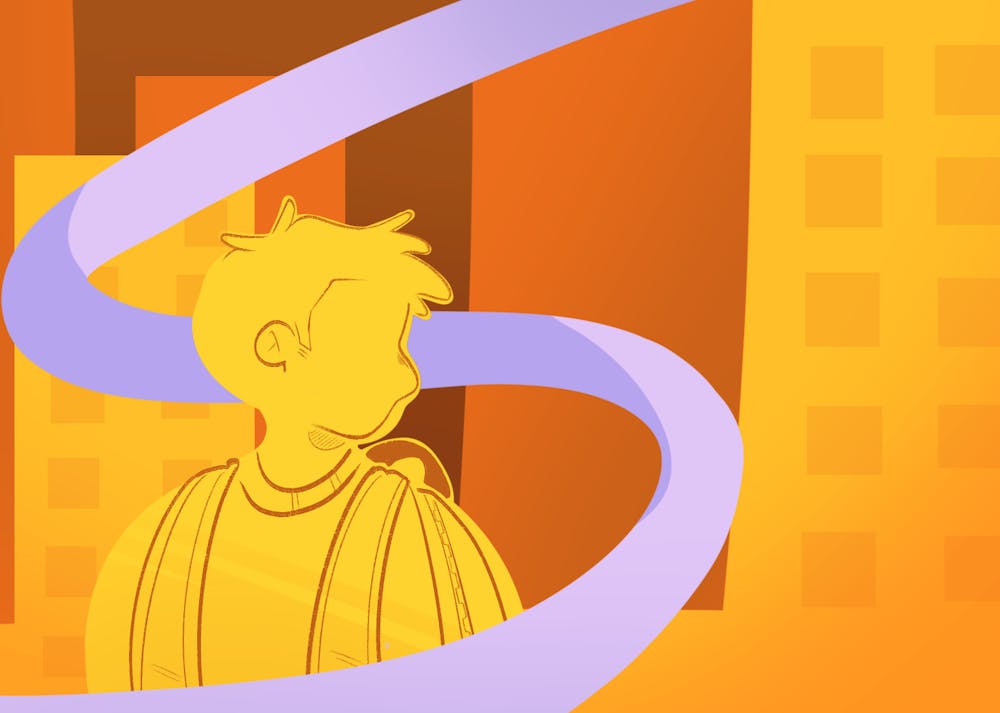I wake up to my leg throbbing in pain. It's early February and I didn't get home from work until one in the morning. I am beyond tired and the last thing I need is a lump on the inside of my leg. The lump had been concerning me for weeks and sent sharp pain down to my toes.
Hours of writhing in pain pass by and I finally overcome my pride to call my mom, who lives an hour from my apartment, and ask her to drive me to the emergency room. The doctors pump me full of pain medications and run various tests on me. The diagnosis: cancer.
Nearly 40% of men and women will be diagnosed with cancer in their lifetime, but you never think it's going to be you.
Asher Hyre, a junior sports journalism student at ASU, officially became cancer-free in April after roughly six months of treatment. I was scrolling on Twitter when I came across his announcement tweet. I immediately reached out.
We spoke for nearly 40 minutes over Zoom about cancer, chemo and the life lessons we hope it will teach us. Although our experiences are very similar, his outlook on the whole situation is unmatched.
"I’m sorry that you have to get through this too. It’s brutal. Just know that it will end, everything really is temporary," Hyre said.
Hyre's treatment was unique to his type of cancer, four cycles of one week in the hospital followed by two off weeks.
"I was being treated at a children’s hospital, so I was really the oldest guy there being treated. All the nurses were either in college or just out of college so that was weird," Hyre said.
It is estimated that up to one-third of people treated in hospitals for cancer have a common mental health condition like depression or anxiety.
For Hyre, this anxiety manifested into a bigger issue that affected his confidence in social settings.
"The anxiety was just so bad. It became social anxiety too. It became hard to talk to people because I just felt nervous and my heart was racing," Hyre said.
A few minutes into our conversation, Hyre took off the beanie he was wearing to reveal his shaved head, which matched mine. He laughed, "My hair looks the same as yours."
One of the strangest experiences I have had during treatment has been losing my hair. It's unnerving to be able to pull out clumps of your hair and even more unsettling to see yourself without your hair.
I shared with him my growing worries about how other people will react to my diagnosis. I confessed that I didn't want it to become my entire identity when it became harder to hide my physical changes.
"I just feel like I’m known now as the guy who had cancer," Hyre said. "That’s not me. That’s one little blip in the road for a couple months but you can talk to me like I’m normal."
Hyre was diagnosed in early November of 2022 with about a month of classes left in the semester. His last memory of the school year was dealing with an unaccommodating teacher.
"He said I had to be in person for the final. I was like 'I literally can’t do that.' So we ended up getting in contact with the higher-ups at ASU. This teacher was not being helpful at all but finally they gave me this online proctored final exam," Hyre said.
Hyre assured me that not all of his professors were like that and that he missed being at college. Hyre had moved back home to Colorado after his diagnosis and took this semester off from school.
"I would just sit there and be mad because I’ve got roommates at ASU and (thinking about) what they’re doing compared to what we’re going through. I just tried to keep that out of my head and not really think about it, knowing that I’ll be back in a couple of months," Hyre said.
I asked him if this experience had changed his outlook on life at all. In some ways, he thinks it did for the better.
"If it’s like a tough job interview or whatever, it’s like, 'Why am I nervous for this when I went through all this chemo bullshit?'" Hyre said.
When asked about what he wanted people to take out of this story, Hyre talked about gratitude.
"There are just a lot of things that are normal that you don’t even think about, if you’re not sick, that you just take completely for granted," Hyre said.
Everything in life teaches us something. For Hyre and I, this has taught us how capable we are in the face of adversity. This might not be the hardest thing we go through in our lifetimes, but it has certainly proved that we can go through difficult times and survive.
"If you can get through this, you can literally get through anything," Hyre said.
Edited by Claire van Doren, Jasmine Kabiri, Greta Forslund and Grace Copperthite.
Reach the reporter at brenna.gauchat@gmail.com and follow @brenngauchat on Twitter.
Like The State Press on Facebook and follow @statepress on Twitter.




